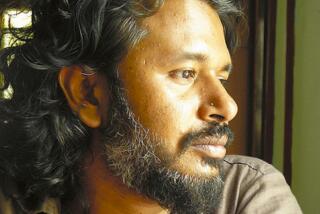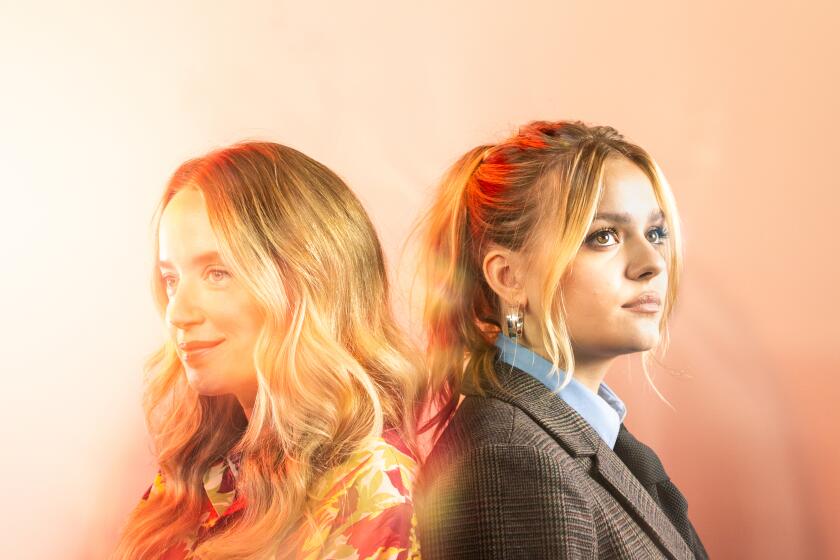Review: ‘Funny Boy’ is an ambitious story about growing up gay and Tamil in Sri Lanka
One of the things that is abundantly clear in “Funny Boy” is that identity is complicated. In this gay coming-of-age story set during the lead-up to the Sri Lankan civil war, director Deepa Mehta ambitiously juxtaposes a teenage love story with rising political tensions and ethnic violence in a film that is ultimately about thriving and sometimes just surviving as someone deemed “different.”
Based on the Lambda Award-winning 1994 novel by Sri Lankan Canadian author Shyam Selvadurai, who also co-wrote the adaptation with Mehta, “Funny Boy” is Canada’s official selection to compete in the international feature category at the 2021 Academy Awards. (And as an Array Releasing acquisition, “Funny Boy” comes with acclaimed filmmaker Ava DuVernay’s stamp of approval.)
At the center of the story is Arjie, a boy from a well-off Tamil family who would rather dress up as a bride for pretend weddings with the girls than play cricket with the boys. Portrayed as a “precocious and wonderful” 8-year-old by Arush Nand, Arjie doesn’t understand why his parents insist on pushing him toward activities he hates but figures out it has to do with people calling him “funny.”
The only adult on his side is his Radha Aunty (Agam Darshi), who encourages Arjie and insists there is nothing “bad” about the young boy just being himself. It is through Radha’s own defiant love story that audiences who may not be familiar with Sri Lankan history and politics are introduced to the tensions between the Tamils, an ethnic minority, and the Sinhalese majority. And it is not long after that the film offers its first glimpse of brutal anti-Tamil violence.
It is once this context is established that the film jumps forward nine years to follow a now 17-year-old Arjie, played by Brandon Ingram, as he falls for Shehan (Rehan Mudannayake), an attractive Sinhalese boy he meets at school. And despite it being a crime to be gay in Sri Lanka both then and now, Arjie and Shehan’s relationship shyly but surely blossoms.
It’s both precious and refreshing when queer characters in coming-of-age stories fall in love without having to overcome any inner turmoil over their identities, so Arjie and Shehan’s story is plenty heartwarming. But as “Funny Boy’s” narrative weaves in the escalating violence between the Tamils and Sinhalese in their town, the comparative lack of urgency (outside of familial disapproval) makes their love story almost secondary by the end.
The stakes between a romantic relationship and systemic violence, where people are being killed because of their ethnicity, are completely different, so that’s not a bad thing. And the juxtaposition helps to show how oppression and prejudice and expectations are not always straightforward.
“Funny Boy” is a specific story that serves to shed light on the experiences of marginalized people, so it would be remiss not to recognize that it has sparked some prerelease backlash and important discussions over Tamil representation and language from members of the Tamil diaspora. But for someone fairly unfamiliar with the Sri Lankan civil war, “Funny Boy” makes the history accessible and relevant in our own incredibly polarized times.
'Funny Boy'
Not rated
Running time: 1 hour, 48 minutes
Playing: Available on Netflix
More to Read
Only good movies
Get the Indie Focus newsletter, Mark Olsen's weekly guide to the world of cinema.
You may occasionally receive promotional content from the Los Angeles Times.











